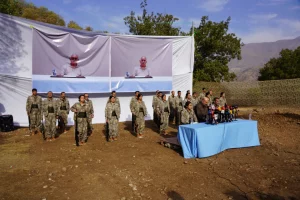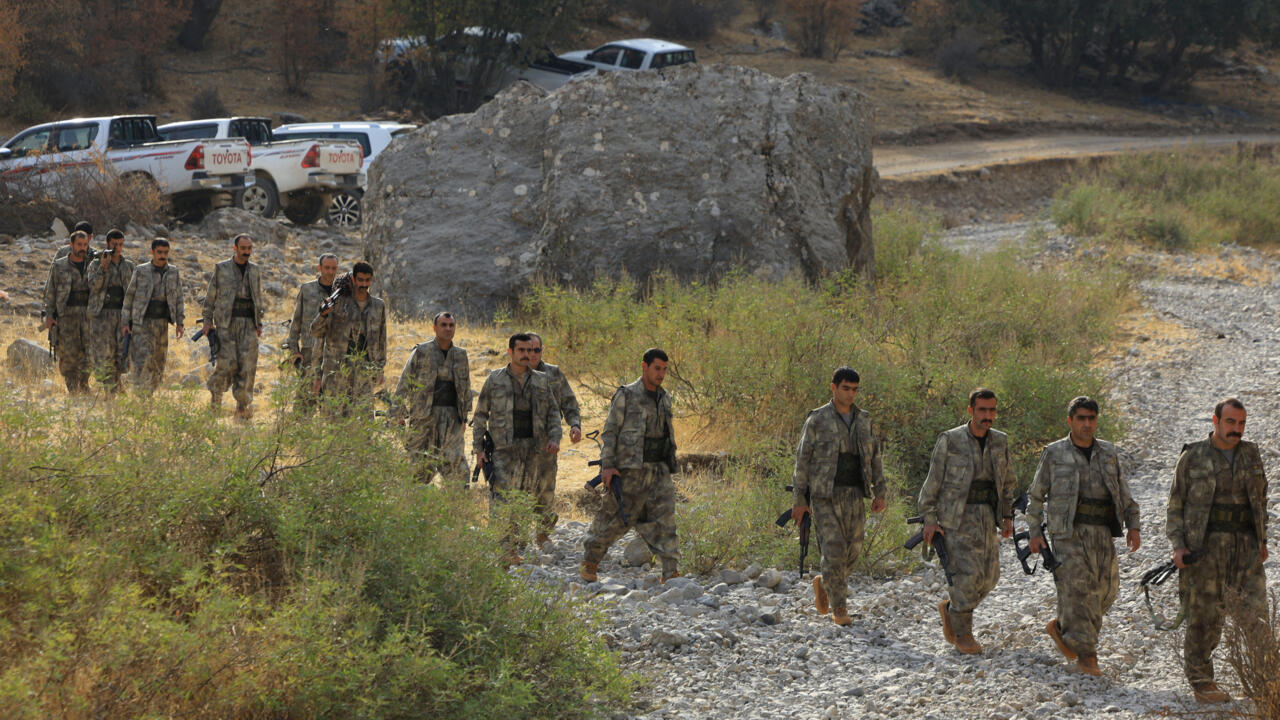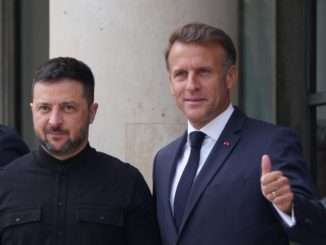
Kurdistan Worker’s Party (PKK) fighters, who reportedly withdrew form Turkey with their weapons, stand to attention during a ceremony in the Qandil area of Northern Iraq, Sunday, Oct 26, 2025. (AP Photo/Rashid Yahya)
Published October 26, 2025
The militant Kurdistan Workers’ Party (PKK) said on Sunday it was withdrawing all its forces from Turkey to northern Iraq and urged Ankara to take the necessary legal steps to protect the peace process. Its jailed leader Abdullah Ocalan in May for the group to disarm after decades of violence that killed some 50,000 people.
The Kurdistan Workers’ Party (PKK) announced on October 26, 2025, that it is withdrawing all its fighters from Turkey to northern Iraq as part of a peace initiative with the Turkish government. This move follows a symbolic disarmament ceremony held months earlier and aligns with the PKK’s declaration in May to disband and renounce armed conflict, urged by its imprisoned leader, Abdullah Öcalan.
PKK representative Sabri Ok emphasized that the withdrawal is intended to prevent clashes and provoke peace, while also calling for legal and political reforms from Turkey. The Turkish government welcomed the step as part of the “Terror-free Turkey” roadmap but urged vigilance against attempts to sabotage the peace process. The developments come ahead of a planned meeting between President Erdogan and Kurdish legislators working to advance political solutions. A new parliamentary committee has also been formed to propose reforms. Despite the PKK’s gestures, concerns over the Turkish government’s lack of progress, particularly regarding Kurdish language rights and Öcalan’s imprisonment, remain significant.
The PKK, long designated a terrorist group by Turkey, the U.S., and the EU, has shifted from seeking independence to advocating for Kurdish autonomy and rights within Turkey. Previous peace efforts between Turkey and the PKK have ended in failure, most recently in 2015.

Kurdistan Worker’s Party (PKK) fighters, who reportedly withdrew form Turkey with their weapons, stand to attention during a ceremony in the Qandil area of Northern Iraq, Sunday, Oct 26, 2025. (AP Photo/Rashid Yahya)
 Fighters with the Kurdistan Workers’ Party (PKK) walk for a disarmament ceremony marking a significant step toward ending the decades-long conflict between Turkey and the outlawed group in the Qandil mountains, Iraq on October 26, 2025. © Thaier Al-Sudan, Reuters
Fighters with the Kurdistan Workers’ Party (PKK) walk for a disarmament ceremony marking a significant step toward ending the decades-long conflict between Turkey and the outlawed group in the Qandil mountains, Iraq on October 26, 2025. © Thaier Al-Sudan, Reuters
 Implications
Implications
-
Security Implications
-
The immediate reduction in armed clashes along Turkey’s southeastern border could improve regional stability.
-
Turkish security forces may reallocate resources from combat operations to monitoring and border control.
-
There remains a risk of splinter groups or radicalized factions resisting the withdrawal, which could trigger localized conflicts.
-
-
Political Implications
-
The withdrawal strengthens Kurdish political leverage to push for reforms, including cultural rights, local governance, and legal protections.
-
Success may enhance Turkey’s international image, showing willingness to pursue peaceful conflict resolution.
-
Conversely, failure to implement meaningful reforms could undermine trust and escalate domestic political tensions.
-
-
Social Implications
-
Kurdish communities in southeastern Turkey may experience improved mobility, safety, and economic opportunities.
-
The withdrawal could foster reconciliation between Turkish and Kurdish populations, reducing long-standing societal grievances.
-
-
Economic Implications
-
Stability in the region may encourage investment, trade, and infrastructure development.
-
Local economies previously disrupted by conflict may see increased productivity and employment opportunities.
-
-
Regional and International Implications
-
Neighboring Iraq now bears responsibility for the relocated PKK fighters, potentially affecting security and governance in northern Iraq.
-
Western allies, including the U.S. and EU, may view this as a positive step toward peace, but they are likely to continue monitoring progress and reforms.
-
-
Long-Term Implications
-
If sustained, the withdrawal could set a precedent for resolving ethnic and political conflicts within Turkey and the broader Middle East.
-
Failure to address core Kurdish grievances may lead to renewed cycles of conflict, reversing any gains achieved.
-
 Overall Takeaway:
Overall Takeaway:
The PKK’s withdrawal of fighters from Turkey to northern Iraq represents a significant gesture toward peace after decades of conflict. While the move reduces immediate violence and creates an opening for dialogue, the long-term success hinges on the Turkish government implementing meaningful political and legal reforms for Kurdish communities. Historical skepticism, internal political opposition, and regional security dynamics pose challenges, but if carefully managed, this withdrawal could mark the beginning of a new chapter in Turkey-Kurdish relations, fostering stability, social reconciliation, and economic development in affected areas.
SOURCES: AP NEWS – Kurdish rebel group PKK says it is withdrawing its fighters from Turkey to Iraq
THE HILL – Kurdish rebel group PKK says it is withdrawing its fighters from Turkey to Iraq
FRANCE 24 – Kurdish PKK says it is withdrawing all forces from Turkey to northern Iraq
THE SUN CHRONICLE – Kurdish rebel group PKK says it is withdrawing its fighters from Turkey to Iraq





Be the first to comment